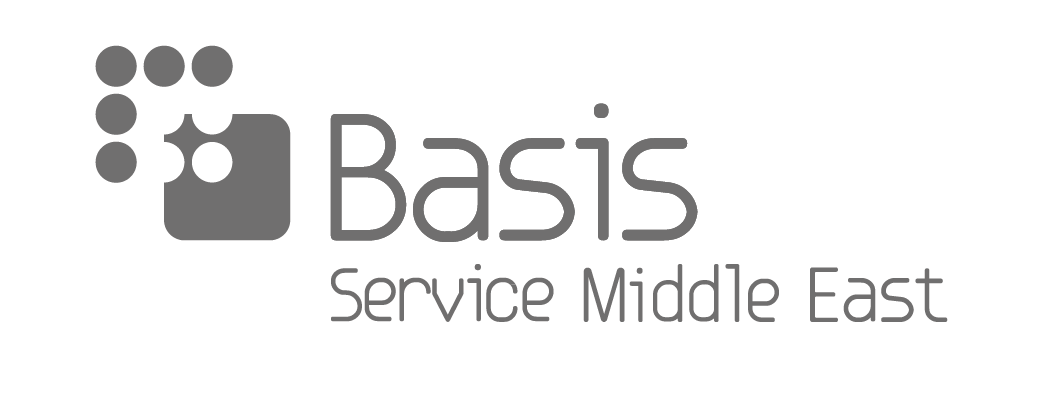Internationalizing business towards the Middle East represents a strategic move for many companies seeking significant growth in the global economic scenario.
As businesses aim to expand their horizons and tap into new markets, many are setting their sights on this dynamic region.
This increased interest is part of a broader trend of an internationalization process, as companies strive to go beyond their borders and establish a presence in foreign markets.
But how to navigate effectively in this area that is geographically and culturally distant from one’s own?
This region, rich in resources and with a rapidly evolving market, offers countless opportunities for investment and development.
However, the process of internationalization towards the Middle East presents challenges we can’t ignore, primarily related to cultural differences, local regulations and political instability in some areas.
In this article, we are going to address an emerging topic that requires attention: “how to boost the process of internationalization towards the Middle East”.
We will provide practical tips and effective strategies for internationalization to help overcome these challenges and take full advantage of the opportunities offered by this unique region.
It’s important to rely on partners who can help build trusting relationships in the Middle Eastern business world, to penetrate the local culture and traditions, as well as rely upon a range of assets in the operational, computer, and technological fields.
Internationalization towards the Middle East, a region with an increasingly diversified economy
Emerging economies represent attractive markets for businesses, offering potential advantages in terms of cost, innovation, and new outlets.
This attractiveness is further enhanced by the ongoing economic diversification in these economies, as well as their increasing focus on innovation and technological development across various industries such as renewable energy, industrial automation, mechanical engineering, electrical engineering, and more.
The Middle East, known for its rich history and vast economic potential, strategic position, and economic growth, is generating increasing interest in foreign companies.
In recent years, the region has seen significant advancements in various industries, including technology, finance, and retail, creating a wide range of opportunities for foreign businesses. Middle Eastern countries are making concerted efforts to attract foreign investment, offering incentives and establishing free trade zones to facilitate business operations.
The demand for innovative ICT solutions and software is growing
We are witnessing the growth of technology and ICT companies, and the exponential increase in demand for IT solutions, thanks to global digitalization that is increasing without geographical distinction.
The research and demand for innovative IT solutions and quality software are growing more and more also in the Middle East.
This trend represents a significant opportunity for technology solution providers capable of offering innovative and customized systems to meet specific needs in this region.
The reason for this interest lies in the ever-increasing digitalization of business processes and everyday life.
In the Middle East, this trend is further amplified, fueled by socio-economic and environmental factors, including
- rapid urbanization
- industrial expansion
- increased digital awareness.
The Rapid Increase of Urbanization
The profiles of countries within the Middle East and North Africa (MENA) are changing in various aspects, primarily from a demographic perspective.
According to World Bank forecasts, the population under 35 in the MENA region, which currently represents about 65%, is anticipated to stabilize around 57% by 2030.
This is expected to perpetuate the imbalance between the demand for labor and the ability to create sufficient employment to absorb the surplus of young job seekers.
The increase in urbanization, a very relevant phenomenon closely linked to demographic change and the expansion of the middle class, will lead to further growth in demand for large infrastructure projects from these countries and, therefore, to greater opportunities to transfer technology and know-how for all that is needed.
The execution of infrastructure projects (construction or development of structures such as roads, bridges, electrical grids, sewage systems, etc) is closely tied to the provision of technological services.
These services require high levels of knowledge and expertise, manifesting in the form of technical studies, dispatching technicians and experts for tests and support of local workers, as well as providing technical assistance.
The challenges of internationalization towards the Middle East
Internationalization towards the Middle East is not without challenges.
The region’s complex political landscape, diverse cultural norms and regulatory environment can pose significant challenges for foreign companies.
Expanding into this culturally diverse and geographically distant region can seem daunting for foreign companies, especially for SMEs (Small and Medium-sized Enterprises) with limited global experience.
Navigating local regulations, customs, and building partnerships requires experience that may not always be possessed by those from abroad.
Yet, with the right approach and a deep understanding of the local context, these challenges can be effectively overcome.
Expanding your company’s business in the Middle East and achieving tangible, profitable results is possible. However, it needs to be done correctly, with optimal management of interpersonal relationships, relying on external support that can provide solutions to problems and needs in the Middle East.
Business Internationalization Strategies: How to internationalize towards the Middle East
Within the emerging markets of the Middle East, business in United Arab Emirates (UAE) is of particular interest.
This region is indeed well-known for its consistently growing economy and for being a regional hub for many international companies. Its strategic location, robust infrastructure, and investor-friendly policies make it particularly attractive to businesses around the world.
The UAE federation represents one of the most prosperous economies in the Middle East, thanks to a strategic geographical location at the crossroads between Europe, Africa, and Asia, openness to trade, and the recent implementation of an economic diversification effort that has attracted more international investment.
To successfully internationalize in this region and, in general, in the Middle East, or to attract investments from the region, companies must adopt a strategic approach.
This includes,
- conducting thorough market research
- understanding local customs and regulations
- building strong relationships with local stakeholders
- adapting business practices to fit the local context.
The best option for foreign companies looking for an operational hub in the Middle East is to rely on a local hub with deep knowledge of the area.
How a Well-Established Business Partner Can Support Your Internationalization Process in and out of the Middle East: Key Benefits
A well-rooted partner in the region can indeed serve as a valuable intermediary, facilitating access to networks, investors, and business opportunities.
This is where partnering with a leading market innovator provides the solution. An established regional player can facilitate the entry process thanks to valuable insights.
By leveraging their knowledge and networks, foreign tech companies can find support and effectively scale in the Middle East.
Some key benefits of having a strategic alliance and a local point of reference include:
- Access to opportunities: local partners open doors to potential customers, investors, and projects. They identify business opportunities that might otherwise go unnoticed.
- Knowledge of local bureaucracy and legal frameworks that require nuanced understanding. The laws and administrative procedures of these countries can be complex for those who do not know them in depth. A local partner can guide the company through these aspects efficiently. Partners alleviate tensions by driving compliance.
- Networking in the area: thanks to its contacts, a hub can facilitate meetings with potential customers, partners, and key suppliers, accelerating the start of business.
- Support services: from translation and administration to office facilities, partners can handle logistical responsibilities that foreign companies may not have the bandwidth to manage. A local operator can simplify daily activities, allowing the company to focus on its growth.
- Cultural knowledge: cultural differences should not be underestimated. A Middle Eastern partner can advise on unwritten aspects essential for success in the market. Subtle norms greatly influence business conduct. Regional allies advise appropriately to build trust relationships.
By joining a well-established player, global tech companies of all sizes can comfortably set up a shop and tap into the vibrant digital markets of the Middle East. Regional experience unlocks the potential for international expansion and mutual growth.
By relying on a solid hub with a historical presence in the area, foreign companies can thus fully exploit the opportunities offered by the digital transformation of the Middle East in a credible and sustainable way.
A partner of this type can also act in the opposite way, that is, facilitating exchanges from the Middle East to Europe. In fact, in recent years, there has also been a significant increase in Arab investors from the Middle East looking towards Europe.
These investors are attracted by Europe’s stable economies, advanced infrastructure, and innovative entrepreneurial environment.
They are particularly interested in industries such as real estate, technology, and renewable energy.
But this is a topic we will address in a future dedicated article.
Your Business Partner to and from the Middle East
In conclusion, the importance of relying on a business partner when planning an internationalization process in the MENA territories is evident.
This is our mission.
We understand how daunting such a process can be, which is why we have defined our role as a partner to access business opportunities in the MENA region, to support companies with specific needs in our fields of expertise, but also foreign companies seeking an operational hub in the Middle East.
Basis Service Middle East operates as a single point of contact that brings together all the services of the Basis Group in the Middle East.
We are an international company laying the foundations to embrace the UAE market, in order to improve connections with other hubs. We are international, with offices in the UAE, Italy, Great Britain, North America, Algeria, and Libya.
We have specialized in building relationships to and from Middle Eastern countries, through an integrated mix of commercial activity, sales, business development, operational support both digital and on the ground.
We work to find the best solutions to our clients’ problems, through the integration of the commercial offer and the experience of the group’s companies. Through our problem-solving attitude, commercial activity, and constant business operations.



